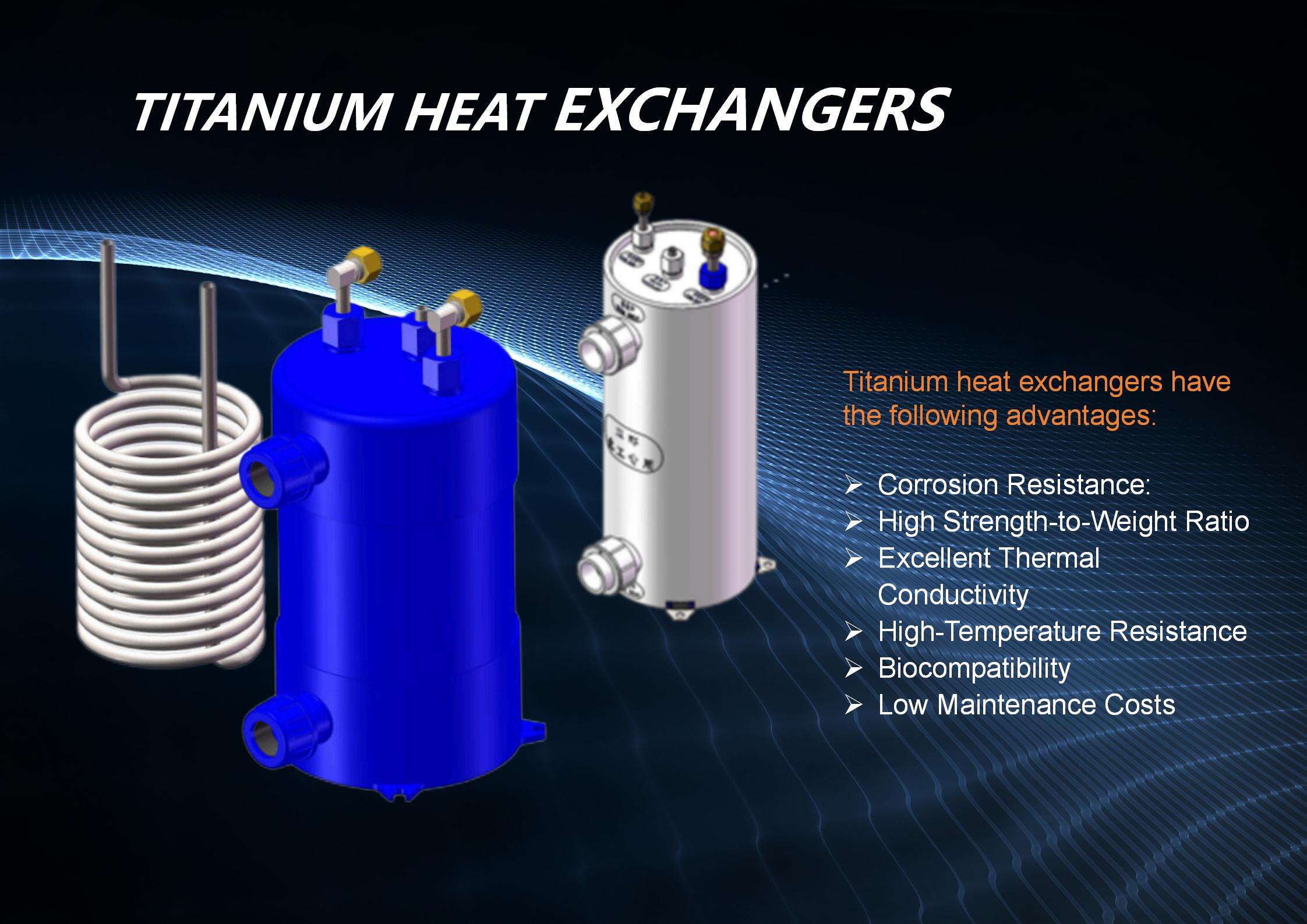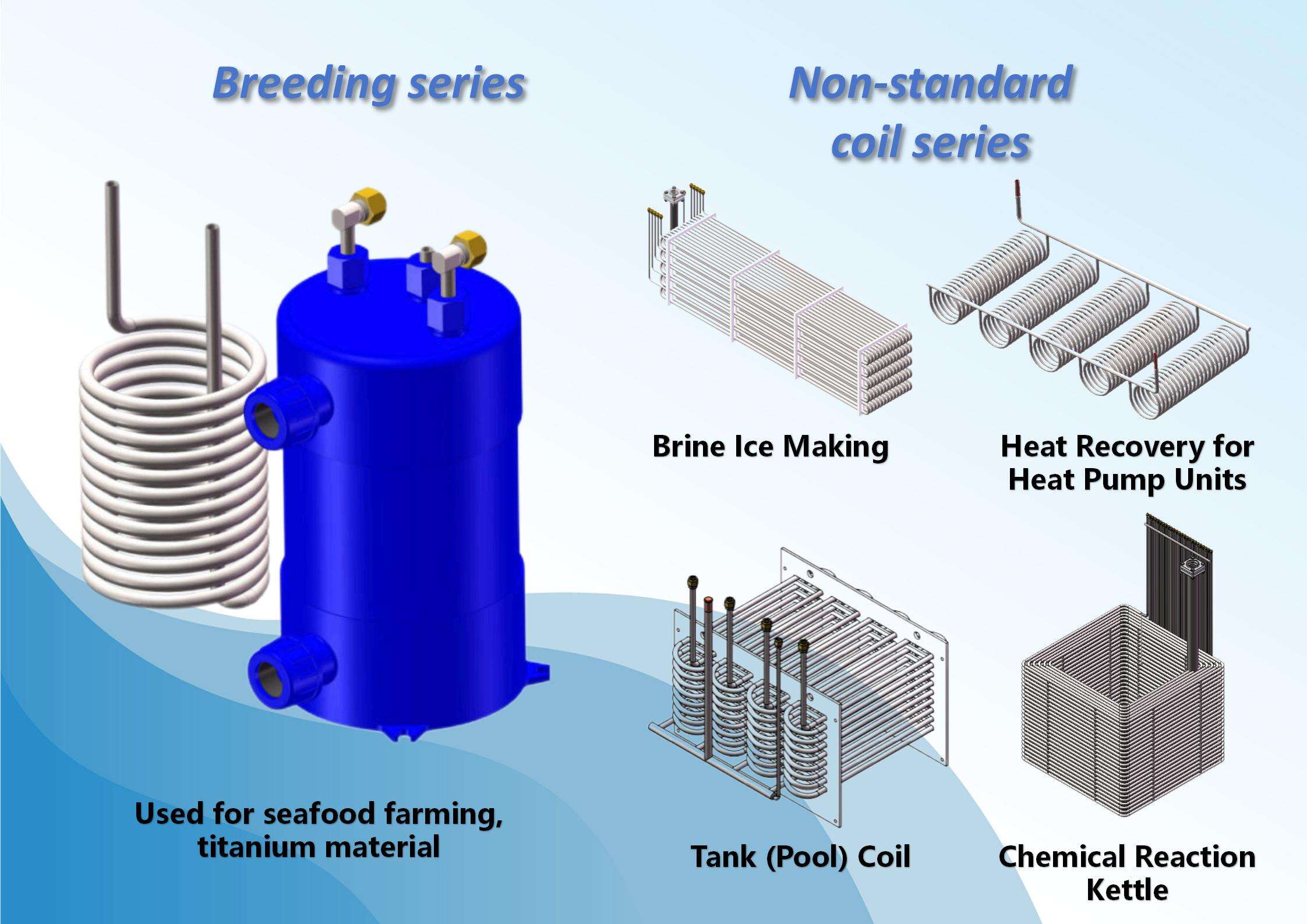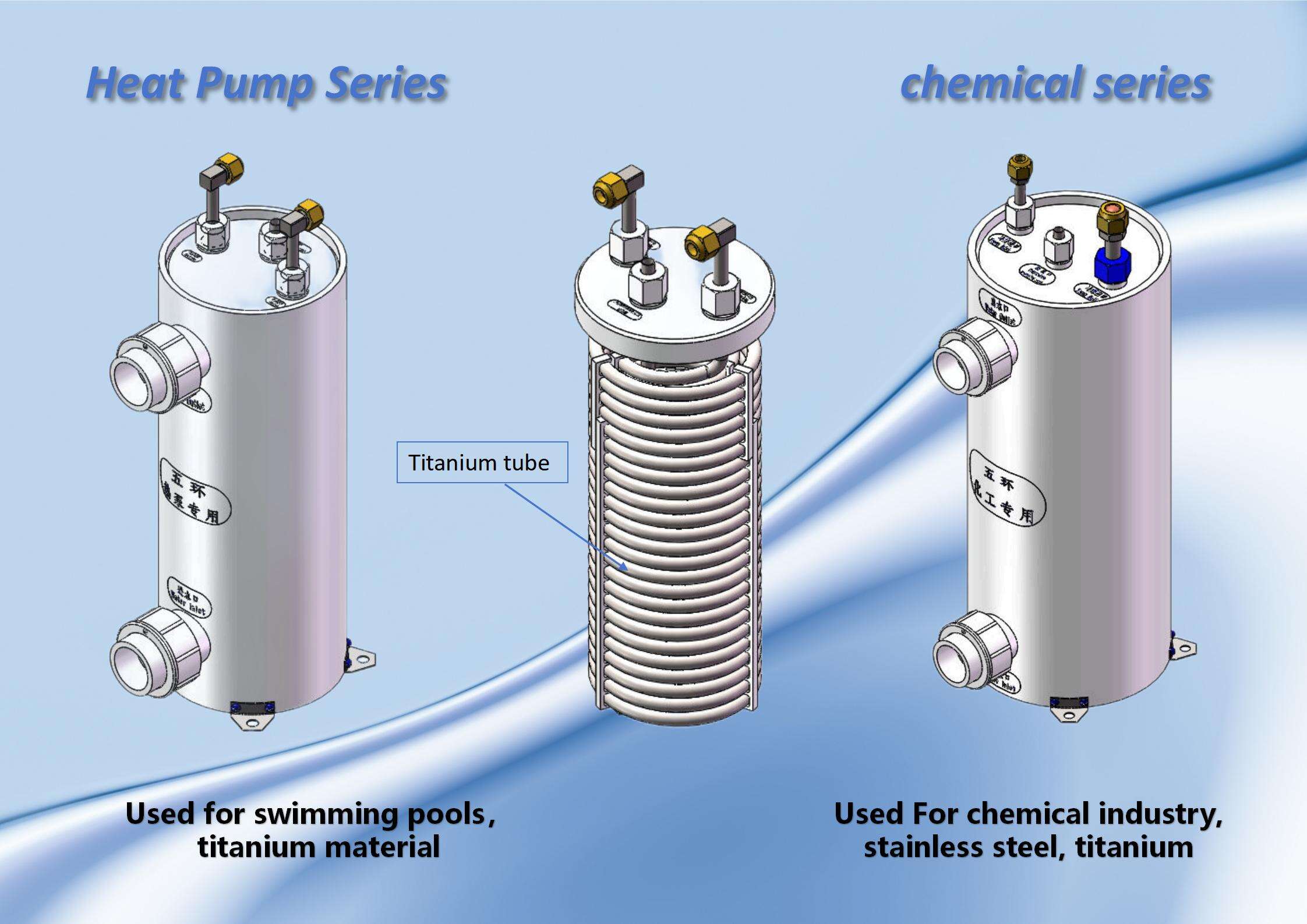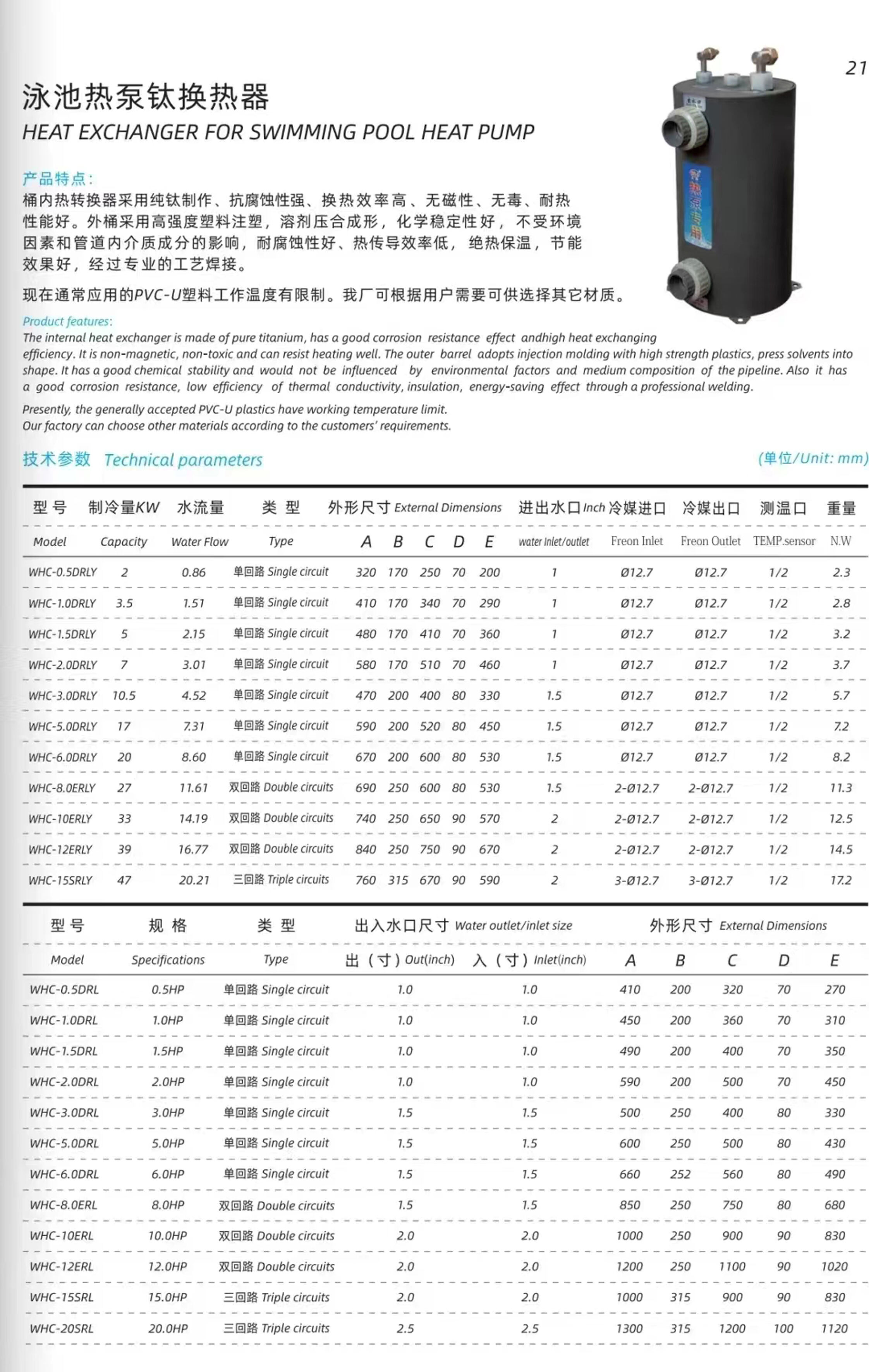Applications:
Swimming pools
Marine engineering
Chemical production
Pharmaceutical production
Food processing
Titanium heat exchangers have the following advantages:
1. Corrosion Resistance: Titanium exhibits excellent resistance to corrosion in seawater, chlorinated water, alkaline solutions, and most organic acids, making it ideal for use in corrosive environments.
2. High Strength-to-Weight Ratio: Titanium has high strength but low density, allowing titanium heat exchangers to be strong while remaining lightweight, which facilitates installation and handling.
3. Excellent Thermal Conductivity: Although titanium's thermal conductivity is not as high as some traditional metals, its excellent corrosion resistance and low deposition characteristics compensate for this, maintaining high heat transfer efficiency over long-term use.
4. High-Temperature Resistance: Titanium retains good mechanical properties and chemical stability at high temperatures, making it suitable for heat exchange applications under high-temperature conditions.
5. Biocompatibility: Titanium is non-toxic to the human body and is often used in heat exchange equipment in the pharmaceutical and food industries.
6. Low Maintenance Costs: Due to its corrosion resistance and strength, titanium heat exchangers generally have a long service life, reducing the frequency of repairs and replacements and thereby lowering overall maintenance costs.
These advantages make titanium heat exchangers widely used in marine engineering, chemical industry, pharmaceuticals, food processing, and other fields.



